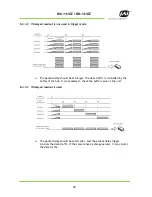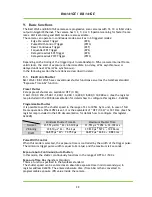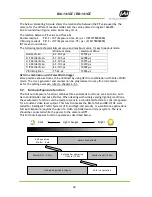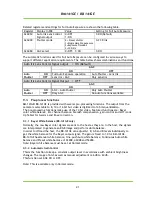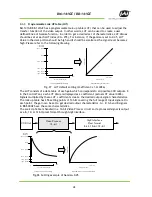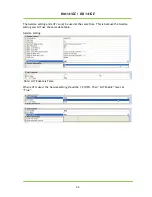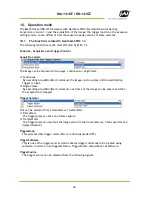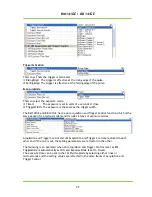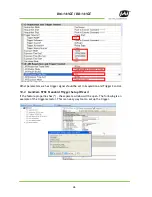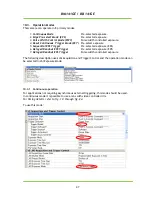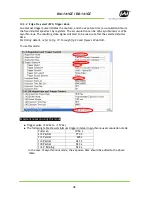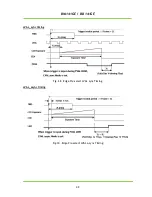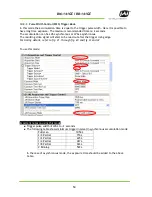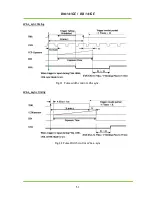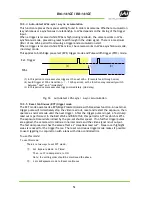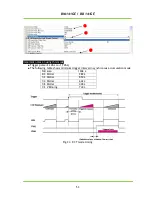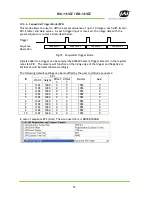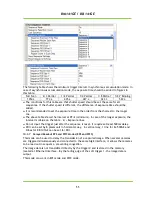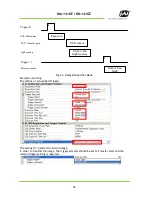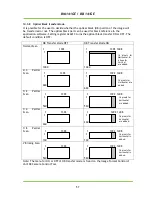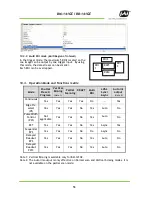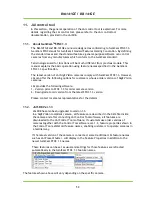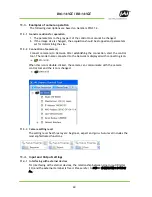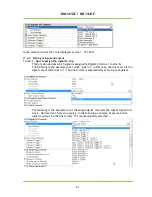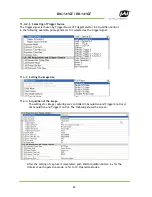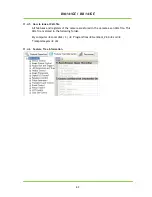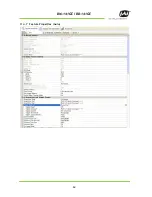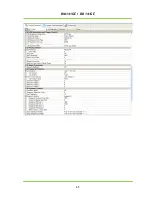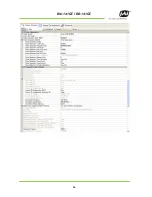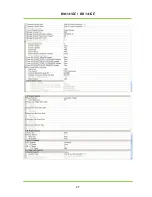
BM-141GE / BB-141GE
52
10.3.4 Auto-detect LVAL-sync / a-sync. accumulation
This function replaces the manual setting found in older JAI cameras. Whether accumulation
is synchronous or asynchronous in relationship to LVAL depends on the timing of the trigger
input.
When a trigger is received while FVAL is high (during readout), the camera works in LVAL-
synchronous mode, preventing reset feed-through in the video signal. There is a maximum
jitter of one LVAL period from issuing a trigger and accumulation start.
When a trigger is received while FVAL is low, the camera works in LVAL-asynchronous mode,
(no delay) mode.
This applies to both Edge pre-select (EPS) trigger mode and Pulse width trigger (PWC) mode.
Fig. 33. Auto-detect LVAL sync / a-sync accumulation
10.3.5 Reset Continuous (RCT) trigger mode
The RCT mode operates like EPS(Edge Preselect)mode with Smearless function. An external
trigger pulse will immediately stop the video read out, reset and restart the exposure, then
operate as normal mode until the next trigger. After the trigger pulse is input, a fast dump
read out is performed. In the BM-141GE and BB-141GE, this period is 6.77ms which is 215L.
The exposure time is determined by the pre-set shutter speed. If no further trigger pulses
are applied, the camera will continue in normal mode and the video signal is not output.
The fast dump read out has the same effect as “smearless read out”. Smear over highlight
areas is reduced for the trigger frame. The reset continuous trigger mode makes it possible
to use triggering in conjunction with a lens with video controlled iris.
To use this mode:
To use this mode:
There are two ways to set RCT mode.
。
①.
Set Exposure Mode to Timed
Then , set Pre-dump mode to ON.
Note: the setting order should be mentioned the above.
②
. Set JAI Exposure mode to Reset continuous
(1)
(2)
(3)
Ext. Trigger
FVAL
(1) In this period camera executes trigger at the next LVAL. (Prevents feed-through noise)
(2) Avoid trigger at FVAL transition (+ / - 1 LVAL period), as the function may randomly switch
between “next“ and “immediate“.
(3) In this period camera executes trigger immediately. (No delay)

